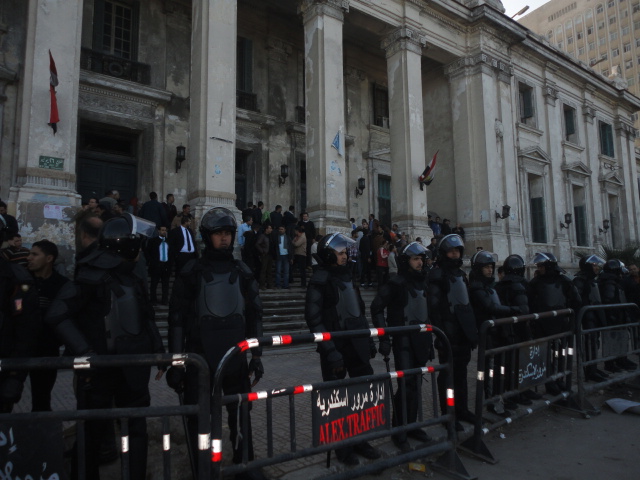Maha sifts through old objects atop her dresser, hoping to stumble upon old stories to keep her company in Bahiga Hussein’s new work “Hakayat Adeya le-Male’e Al-Waqt (Ordinary Stories to Fill Time).
From start to finish, the Egyptian character of this realist novel is unmistakable. “I didn’t compose a novel from scratch; I witnessed some of these stories and just rewrote them, Hussein said in a discussion held recently at Diwan bookstore.
Seven years after the release of her fourth novel, Hussein, a journalist for Al-Ahaly newspaper, returns with an enjoyable new work. The author’s main theme, evident throughout her past works, has been the many forms of oppression; a subject she continues to explore in her latest novel.
Maha is a girl raised in the Egyptian countryside in a well-off, cultured family. Years later, she moves to Cairo to work and recounts her stories with city folks, allowing Hussein to comprise her tapestry of brilliant characters.
Most fascinating about these stories is that they are recounted the way stories are told in real life, leaving some details out here, inserting little commentaries there. Each story carries a singular tone that reflects the identity of its author along with the intentions behind the telling.
Among these characters is Maha’s aunt Malk, a strong-willed woman standing firm in the face of her wretched past to steer her future any direction she pleases. Still unable to forget her teenage lover who backstabbed her, Malk’s sorrow has transformed her into a real force in her village. She talks down to men and curses them for no other reason than to hammer it into their memories that a woman once insulted them. In other instances, she accuses them of stealing just to make sure no one actually attempts to.
This is one of several examples where the oppressed take out their oppression on others, propelled by the fear of being oppressed again.
In Cairo, Maha encounters a drastically different reality. She works in a government institution where she summarizes top news stories. We find many of the city’s current realities and recognizable residents in her workplace. We meet “the crazy woman sitting near the building entrance, who, although mostly harmless in appearance, seems to have a painful past.
She tells herself “I know I did this to myself, no one forced me. I chose the dirty woman I am, I did it all to myself.
Inside the Maha s office building is a more disturbing world of corruption.
The readers meet the aging Madame Shafky, a woman who has seen better days. Madame Shafky is now forced to deal with the new, unqualified employers and their interest in false rumors and vulgar gossip while pretending to be religious to reach their goals. They indirectly scold her for not wearing the hijab, discussing out loud the suffering she, and others like her, will go through in hell. In this story, the oppression is personified in the indifference of the institution’s director.
Maha, the storyteller, has no story of her own and she rarely comments on the stories she tells.
As a law graduate, she often fantasized about wearing the lawyers’ black robe and defending the downtrodden. Nevertheless, she swiftly dismisses this whim, saying “I don’t want to drown in re-producing dreams.
Maha only wants to drown in dreams that have already been produced. Does this make her the perfect storyteller or the worst? She’s both, but, most definetly; she’s the least brave story writer there is, afraid of jotting down one word of her own story. “I am afraid of fear itself, Maha confesses, stressing her dread from reaching a miserable conclusion, a fear the stories she recounts have imprinted her soul with.
But her outlook changes in the last few pages, where, by way of accident, her overly-secure work place is gone, and she finally obtains her freedom.
“It was as if she was freed from all her chains: society, her work responsibilities, oppression, and from the weight of time itself, Hussein says.
The question is: Can Maha manage to cope with this freedom? Will she stay faithful to her resolution of leading a new life?
One of the attendees of the book discussion had reasonable doubts about Maha’s persistence, and so did I. Most of us anticipate a new life, and when a glimpse of it flashes by, some throw themselves at it, keeping nothing to fall back on. Yet, if Maha does fall, at least she has her ordinary stories to fall back on along with a new story of her own.
